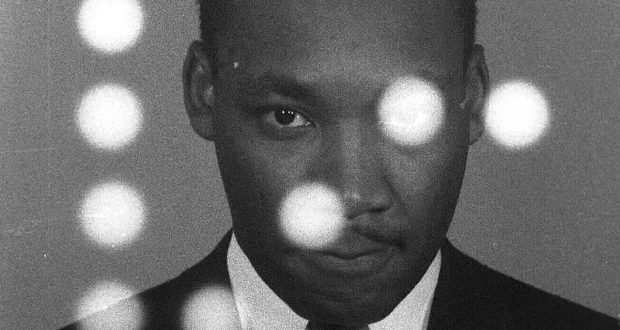Opening in Select Theaters, Digital & Cable VOD January 15
MLK/FBI is an essential expose of the surveillance and harassment of Dr. Martin Luther King, Jr. (labeled by the FBI as the “most dangerous” Black person in America), undertaken by J. Edgar Hoover and the U.S. government. Based on newly discovered and declassified files, as well as revelatory restored footage, the documentary explores the government’s history of targeting Black activists. Directed by Emmy® Award-winner and Oscar®-nominee Sam Pollard, MLK/FBI recounts a tragic story with searing relevance to our current moment.
Q: You were part of a team who made arguably the most comprehensive documentary series about the Civil Rights movement to date. I’m not sure you ever had any reservations about approaching a massive undertaking like this one but talk a little bit about how you arrived at taking on one of the most iconic symbols of civil rights in the United States. What led you to the project?
Sam Pollard: Working back in 1987 and 1988 on “Eyes on the Prize,” one episode I did was called “Two Societies,” which followed when Dr. King went to Chicago to bring the movement from the South to the North, and the hostility he faced. It was a wake up call to me to know that Dr. King wasn’t always loved and embraced by the American public. If we fast-forward, my producer Benjamin Hedin reached out to me over two years ago about making this documentary, and it was a continuation of my understanding of the contradictions in terms of how King is looked at today by most Americans, and how he was really looked at back then.
One of those interesting things in our film is when Beverly Gage mentions the fact that there was a poll taken after King and Hoover met – the only time they ever met – about who was more popular. Hoover was much more popular than Dr. King. Most people forget that now, because Hoover is looked at as a pariah, but most Americans back then thought he was a hero. As did I, as a young African American man— 15, 16 years old— I embraced the American notion of what the FBI was all about. Watching the FBI show on television, watching an old movie from 1959, Jimmy Stewart. The FBI were heroes: beating the gangsters, fighting communism.
It’s always interesting to learn the true story behind these organizations that we mythically make so heroic. We wanted to look at the complexity and the accuracy of the American landscape in terms of the federal government. I hope this film is a wakeup call for America. I understand how complicated this notion of being American is, and how complicated the FBI is today.
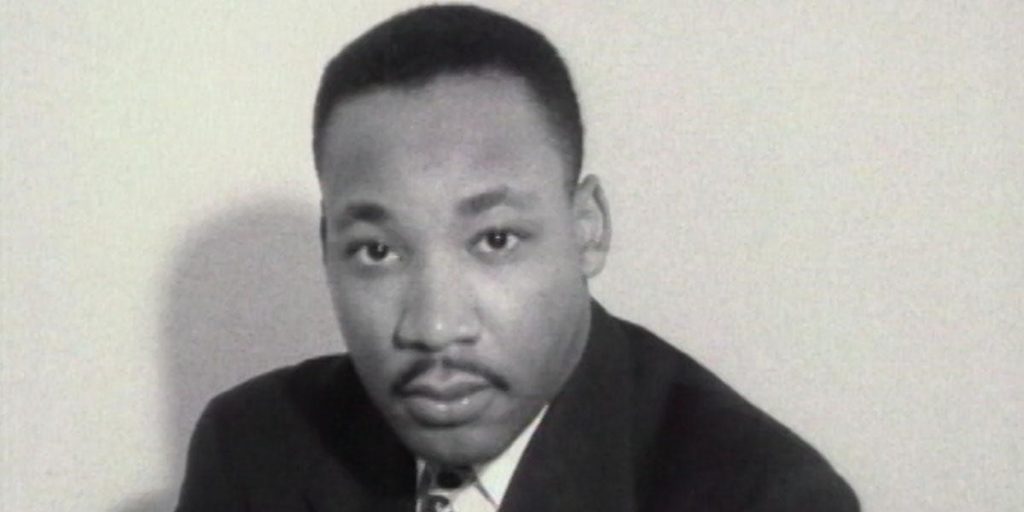
Q: We’ve generally known that the FBI spied on Dr. King. But obviously, your film dives deeply into this subject. How long did it take you to pore over archives and then newer revelations about the extent of spying? How long did it take to make the film?
SP: My producer Ben was poring over archives from day one. We started to really dig into this material, these memoranda and unredacted material, from the beginning. We did our first interviews in December 2017 but the majority, with Beverly Gage, Donna Murch, Clarence Jones, and Andy Young, were in fall 2018, which in this business is pretty fast. We had our editor start screening the material and footage in November 2019. And here we are with the film world premiering in September 2020.
But it goes back to this decision that was made in 1992, that in twenty-five years some of the documents collected by the Congressional committee investigating assassinations would be unsealed. Because they investigated both Kennedy and King’s assassinations, when documents are released about one, there’s always the other. We couldn’t have known what was in the 2017-2018 declassification. So I think that we were also very fortunate in the timing.
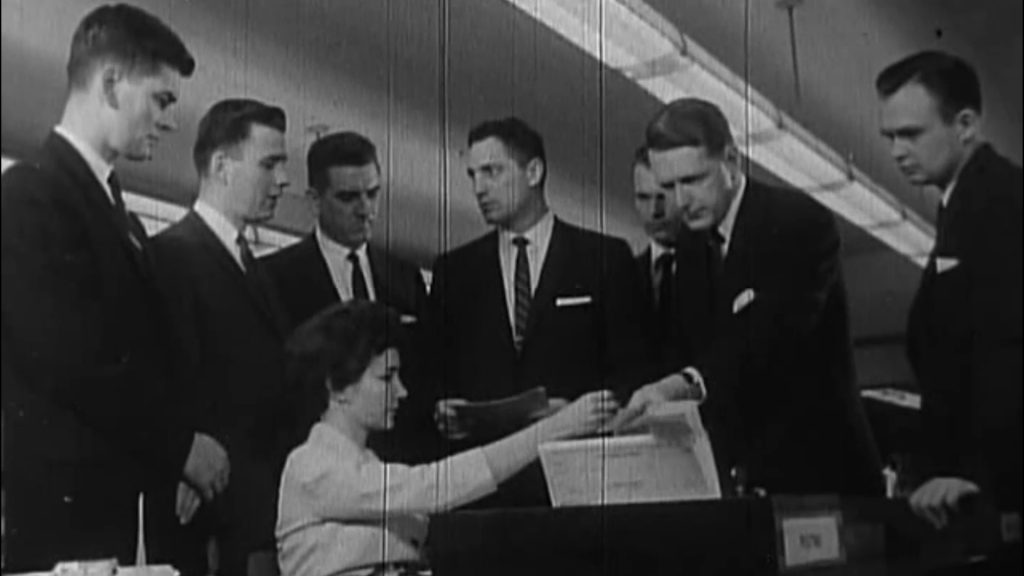
Q: What was new in that declassification?
SP: A lot about the informants and how surrounded Dr. King was. We knew, of course, there were allies in the movement who might be tipping off FBI agents about King’s plans, but the new discoveries make it plain how coordinated and vast the bureau’s sources were. You get to a point where, on the night he died, for example, they’re not even tapping his phones anymore, they have such good informant coverage.
All the same, it’s important to note that, given Hoover’s motives, you can never take anything that is in these files, even once they are declassified, at face value. One must always remember the source — where it came from and why.
Q: It’s eerie how similar the crisis over Black safety inequality in the period covered by the film feels today. And Civil Rights issues are once again at the fore of the American consciousness.
SP: We are a country that’s always constantly struggling with the issues of race, because this country is founded on the backs of slaves. We have what we call a tipping point and a reckoning in America with Trump in office, with the Black Lives Matter movement and the protests after the murder of George Floyd and the horrific murders that are taking place in this country. So it is extremely timely. But I would say that this film will always be timely in the American zeitgeist, because America and the issues of race never leave. Black men being murdered in the streets of America, by the police, is endemic. It happens every damn day. The work of administrations is to say there’s chaos in the streets, get your weapons out because America is going to fall apart -it happens not only in the Republican administrations, but it happens in Democratic administrations. This is not unusual, but it’s like a huge avalanche now. What Dr. King went through and what America’s going through today is so connected. At the end of the film, when Beverly Gage talks about the First Amendment, the importance of protesting, it speaks directly to what’s happening in the streets of America today.
We could have done this film a year from now and it would still be timely as far as I’m concerned. Because this is America, quite honestly, and unless we have a real revolution, it’s going to be the same cycle over and over and over again.
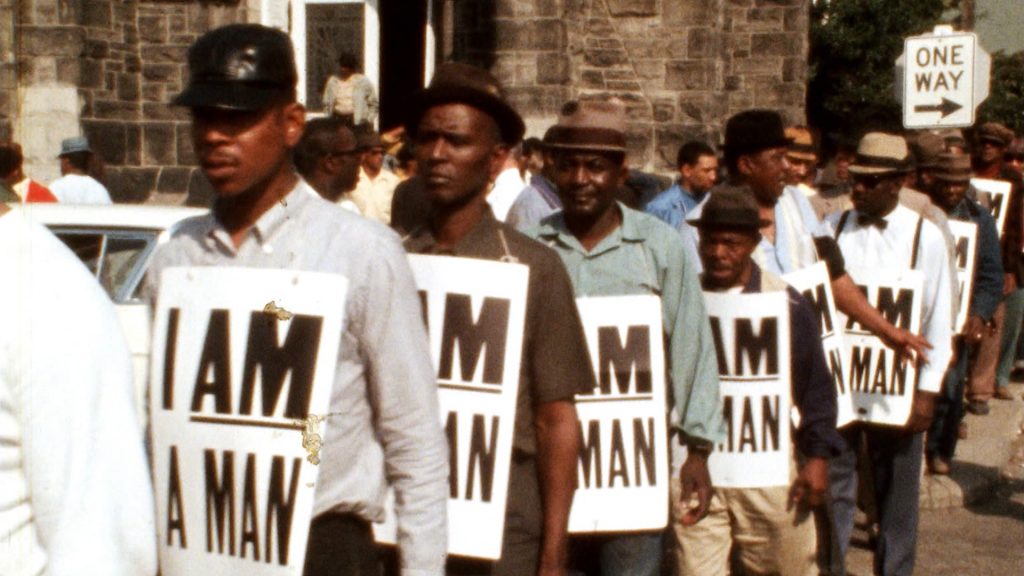
Q: Dr. King’s legacy has morphed so much from when he was living in your documentary. At one point in the film, someone refers to Dr. King as the most “dangerous Negro in America.” Can you talk a little bit more about how you dealt with his legacy?
SP: I think it’s important to say a couple of things. First, I think his legacy is going to stay intact. What happens to people who are very important in our history is that over time they are revisited. A great example is how I grew up thinking Abraham Lincoln freed the slaves. He was a great president. That’s what was taught to me. Now, we learned over time that Lincoln didn’t initially want to free the slaves. It just became something that was necessary to win the Civil War. In some ways he wasn’t “The Great Liberator” or “The Great Emancipator.” But has it really tarnished his reputation? Abraham Lincoln? Not really. You know, he is still considered one of the great American presidents. So the fact that we have known this already about Dr. King, that he was not a monogamous man, that he was a human being like everybody else. I don’t think it’s going to do anything to hurt his reputation.
We had this discussion when we decided to make the film. We talked about it. When we decided to include the rape allegations, we felt like it was important, as serious filmmakers. To look at all sides of this story, we couldn’t skirt that issue. We had to deal with that. Was Dr. King complicit in whatever went on in that room? Why would the FBI not go in there and interrupt and arrest them if they knew a woman was being raped? And this all comes from a handwritten note on a memo- there aren’t transcripts of the allegation. It begs many questions, but the information is out there, has been reported on, and we as filmmakers needed to include it in a responsible way, as part of the larger picture of the surveillance. In terms of what the FBI said on the subject, they’re going to couch it in a way that makes King look as horrific as possible. So you have to question everything about it. I don’t think anybody alive really knows what happened in that room.
When you create a film about someone, you have to look at everything, all the edges. Every part of the human being. If you wanted to see what I call a whitewashed version, it’s easy to do. But to me, as a filmmaker, I believe that all of us are flawed human beings – as James Comey said. My job is to look at all of that and question it. In a responsible way, but you have to do it. And if you don’t do that then you’re not doing your job. To me, whoever King was as a man didn’t take away from what he did as a great Civil Rights leader.
What we arrived on after scouring the documents and looking at the facts is that the FBI was so frightened and afraid of this man they were willing to go to any lengths to destroy his reputation. Something people overlook, is that the civil rights movement was not just Dr. King. America always has to create one person who takes us to the mountaintop, when there were lots of foot soldiers in the Civil Rights movement who got us to the ‘64 and ‘65 Civil Rights Act, the Voting Rights Act – Fred Shuttlesworth and Ralph Abernathy and Dorothy Cotton and Fannie Lou Hamer – there were so many people, it wasn’t just King. He’s been made into the titular head. There’s more than one way to look at Dr. King, and at the movement.
There’s a very important distinction at the end of the film that the FBI wasn’t a rogue agency. King was pitted against the entire power structure of the government, in that the White House was privy to the surveillance. They would listen in on the recordings. The Congressional committees all knew about it. Nobody stopped it. So it was something that went just beyond the FBI headquarters and the suspicion of King in the halls of power persisted for so long. You know, Reagan didn’t even want to sign the holiday into law. And that’s more than a decade after he was shot.
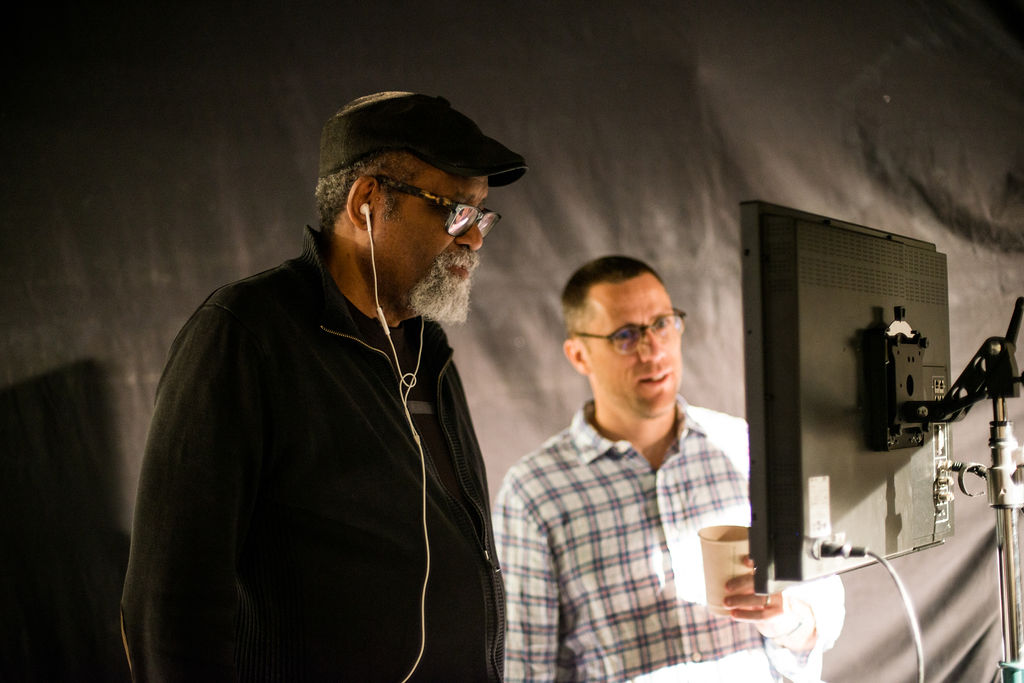
Q: Can you talk about the stylistic choice to use archival?
SP: We had discussions in terms of stylistic approach, how we wanted to put it together. Normal rule of thumb is usually you have your interviews on camera and you interweave the archival footage with it. But we felt like we wanted to make sure that you get a real sense of the narrative visually, with this wealth of archival. We wanted to let you just marinate in that new archival material, like the footage of Dr. King at home with his kids.
I want to really tip my hat to Laura Tomaselli, the brilliant editor of the film.
Q: Sorting through all of the archives and materials must have been a huge undertaking. How did you get a hold of rare footage? How did that all come together to shed light on the surveillance of Dr. King?
SP: We had a great archivist, Brian Becker, and it was important to use footage we hadn’t seen before. So we privileged that. If it had been seen, it was almost like it was off the table. And we benefited quite a bit from stuff that exists but hadn’t been digitized. The March on Washington footage, the Library of Congress just digitized that a couple of years ago. That film’s been sitting in their warehouse, so that was a source also.
The footage of King with his family, I’ve never seen before, nor the footage of James Earl Ray being arrested in London. And that’s always the great thing about when you have a good archival producer, who will go to any lengths to find new and fresh material. This gentleman, Brian Becker, did an extraordinary job doing that.
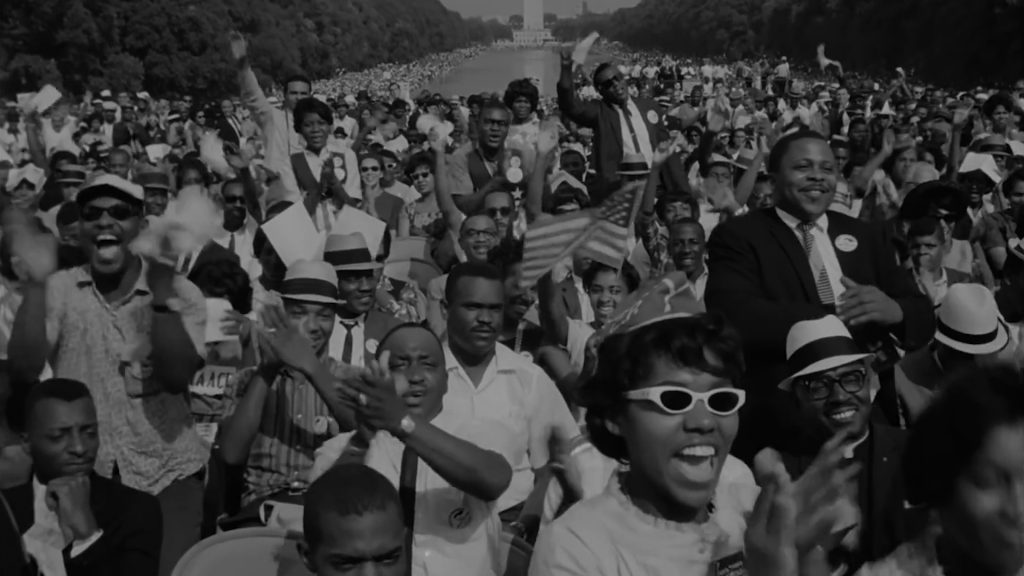
Q: Can you talk about the experts and the voices you chose to include in the film? For example, we hear from James Comey, former FBI director. The voices were distinct from one another. How did you decide which voices stood out to be included in your documentary?
SP: One thing we decided early on was to limit the number of interviews to focus on people who could provide cultural and historical context, as well as people who were close to Dr. King.
Donna Murch’s book on the Black Panthers and Black activist groups, “Living for the City: Migration, Education, and the Rise of the Black Panther Party in Oakland, California” and Beverly Gage’s forthcoming book on Hoover, “G-Man: J. Edgar Hoover and the American Century” made them important voices for context.
In terms of people who were really close to King, Clarence Jones is the man. Clarence Jones is the man because he was at King’s side for many, many years, as was Andrew Young. Both of them were great.
David Garrow’s research remains foundational: he wrote the first major biography of Dr. King, in 1986, and the FBI at one point offered him a monetary settlement if he would not publish his book on the bureau’s campaign against King . And Marc Perrusquia was crucial because he knew about the informants, specifically Ernest Withers. He waged a long court battle against the FBI to get the records proving that Withers was a paid informant. So this was a small group that each person really fitted their particular role.
It was also extremely important to include Bureau sources. As FBI Director, Comey tried very much to take on the legacy of the King surveillance. He would send agents in training to the King Memorial on the Mall and he would have them write a paper about it. Comey said that he kept the original wiretap request that Hoover sent to the Attorney General, Robert Kennedy, in October 1963, the initial request to tap King, under the glass on his desk when he was director as a reminder of the abuses of power. The other FBI source in the film is a guy named Charles Knox, who wasn’t an agent while King was still alive,but what he did was close the “Solo” file. And “Solo” is the codename for a pair of brothers who were embedded in Moscow, maybe the most successful case of informants that Hoover ever had. And it was the intelligence they were providing about the Communist Party that initially sent Hoover on the trail of King. Knox understood the whole sort of arc of the Bureau’s obsession with King.
Q: The surveillance tapes are under lock and key until 2027. Was it a predicament or a challenge not to have those tapes?
SP: The big question for me was what if they opened the files in 2027, would the film become irrelevant? I believe that it will still be relevant. Above all, it’s what this story tells us about the American character. Especially right now. Which is why we decided to proceed. I think anything in the tapes will just flesh out what we already know.
 Westside Story Newspaper – Online The News of The Empire – Sharing the Quest for Excellence
Westside Story Newspaper – Online The News of The Empire – Sharing the Quest for Excellence
